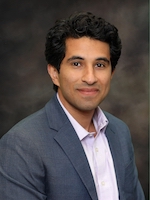 | Mohannad Al-Suwaidan is Ph.D. Candidate at The Fletcher School focusing on the political economy of natural resource wealth distribution. His research examines the role of state capacity in determining the methods states choose to distribute natural resource wealth and transitions from energy subsidies to cash transfer programs. Mohannad has done fieldwork in Saudi Arabia and Indonesia and worked on the political economy of monarchy in the Arab world, sectarianism in the Gulf, and measuring the effects of targeted sanctions. He also contributed to conducting and analyzing a large-scale survey on government performance in the UAE and Saudi Arabia, the first of its kind. Before starting his academic career, Mohannad worked in finance at Kuwait’s sovereign wealth fund, the Kuwait Investment Authority. He holds an M.A. in economics from Boston University and a MALD from The Fletcher School. |
 | Mark Blyth is the William R. Rhodes ’57 Professor of International Economics at the Watson Institute for International and Public Affairs at Brown University. His research focuses upon the causes of stability and change in the economy and why people continue to believe in particular economic ideas despite the abundant evidence to the contrary. The power of economic ideas is a common theme in his work, as seen in his recent award-winning book, Austerity: The History of a Dangerous Idea (2015); The Future of the Euro (2015); and in his new projects on the political foundations of economic growth and how to reduce inequality by growing assets. |
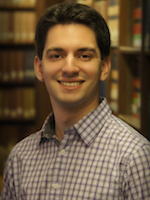 | Arik Burakovsky is Assistant Director of the Russia and Eurasia Program at The Fletcher School. His research interests include the political role of the international media, soft power, public diplomacy, and U.S.-Russia relations. While pursuing his MALD from The Fletcher School, Arik interned in the Public Affairs Section at the U.S. Embassy Moscow and studied the Polish language and culture as a Boren Fellow at the University of Warsaw in Poland. He recently served as the Resident Director for the ROTC Project GO intensive Russian language program in Narva, Estonia in cooperation between the University of Pittsburgh and the University of Tartu Narva College. Arik received his B.A. in Political Science and International Relations at the University of California, San Diego. |
 | Charli Carpenter is Professor in the Department of Political Science at University of Massachusetts Amherst. Her teaching and research interests include national security ethics, the laws of war, agenda-setting in transnational advocacy networks, gender and political violence, humanitarian affairs, and the role of information technology in human security. She has a particular interest in the gap between intentions and outcomes among advocates of human security. She has published three books and numerous journal articles, has served as a consultant for the United Nations, and contributes to Foreign Policy and Foreign Affairs. She also spends her time raising two future members of the American electorate, surfing, snowboarding, and rambling about international politics and popular culture at “Duck of Minerva.” |
 | Thomas Cavanna is Visiting Assistant Professor at the Center for Strategic Studies at the Fletcher School of Law and Diplomacy. A historian with a deep appreciation for IR theory and policy, he writes on grand strategy and American foreign policy in South Asia. Dr. Cavanna is the author of two books, Hubris, Self-Interest, and America’s Failed War in Afghanistan: the Self-Sustaining Overreach (2015) and Paradigmatic Volatility: U.S. Foreign Policy towards India and Pakistan in the 1970s (2017). He also published in the Journal of Strategic Studies, the Texas National Security Review ("Unlocking the Gates of Eurasia: China's Belt and Road Initiative and its Implications for U.S. Grand Strategy"), and various French journals. Dr. Cavanna is currently working on a book on Belt and Road and U.S. grand strategy. He holds a French “Agrégation” and an M.A. and Ph.D. in history from Sciences Po. He was also a Fox Fellow at Yale University. |
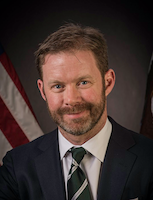 | Jonathan Caverley is Associate Professor of Strategy in the Strategic and Operational Research Department of the Naval War College’s Center for Naval Warfare Studies and a Research Scientist in Political Science and Security Studies at the Massachusetts Institute of Technology. His book, Democratic Militarism: Voting, Wealth, and War (2014), examines the distribution of the costs of security within democracies, and its contribution to military aggressiveness. His current book project is titled Arms for Influence: The Global Arms Trade and the Future of U.S. Power. |
 | Daniel Drezner is Professor of International Politics and Co-Director of the Russia and Eurasia Program at The Fletcher School. He is a nonresident senior fellow at the Brookings and a contributing editor at The Washington Post. Previously he taught at the University of Chicago and at the University of Colorado at Boulder. He has held positions with Civic Education Project, the RAND Corporation, and the U.S. Department of the Treasury, and received fellowships from the German Marshall Fund of the United States, Council on Foreign Relations, and Harvard University. Drezner has written six books, including The Ideas Industry (2017) and The System Worked (2014). He has published articles in numerous scholarly journals as well as in The New York Times, Wall Street Journal, Politico, and Foreign Affairs, and has been a contributing editor for Foreign Policy and The National Interest. |
 | Henry Farrell is Professor of Political Science and International Affairs at George Washington University. He has previously been a fellow at the Woodrow Wilson Center for International Scholars, assistant professor at George Washington University and the University of Toronto, and a senior research fellow at the Max-Planck Project Group in Bonn, Germany. He works on a variety of topics, including democracy, the politics of the Internet, and international and comparative political economy. He is the author of The Political Economy of Trust: Interests, Institutions and Inter-Firm Cooperation (2009) and co-author of Of Privacy and Power: The Transatlantic Fight over Freedom and Security (2019). In addition, he has authored or co-authored 34 academic articles, several book chapters, and numerous non-academic publications. He is a member of the Council on Foreign Relations. |
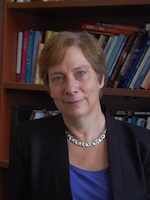 | Martha Finnemore is Professor of Political Science and International Affairs at George Washington University. Her research focuses on global governance, international organizations, cybersecurity, ethics, and social theory. She is the co-author of Rules for the World: International Organizations in Global Politics (2004), which won the International Studies Association’s award for Best Book. She is also author of National Interests in International Society (1996) and The Purpose of Intervention (2003), which won the American Political Science Association’s Woodrow Wilson Award. Her most recent books are Back to Basics: State Power in a Contemporary World(2013) and Who Governs the Globe? (2010). She is a Fellow of the American Academy of Arts and Sciences and a non-resident scholar at the Carnegie Endowment for International Peace. She has also been a visiting research fellow at the Brookings Institution and Stanford University. |
 | Kelly Sims Gallagher is Professor of Energy and Environmental Policy at The Fletcher School, where she directs the Climate Policy Lab and the Center for International Environment and Resource Policy. She has served in the Obama administration as a senior policy advisor in the White House Office of Science and Technology Policy and as senior China advisor in the Special Envoy for Climate Change office at the U.S. State Department (2014-2015). She is a member of the board of the Belfer Center for Science and International Affairs at Harvard University. She is also a faculty affiliate with the Harvard University Center for Environment. Broadly, she focuses on energy and climate policy in both the United States and China. She specializes in how policy spurs the development and deployment of cleaner and more efficient energy technologies, domestically and internationally. |
 | Stacie Goddard is Professor of Political Science and Director of the Madeleine K. Albright Institute at Wellesley College. Her most recent book is When Right Makes Might: Rising Powers and World Order (2018). Her articles have appeared in various academic journals, such as International Organization, International Security, International Studies Quarterly, International Theory, and Security Studies. Her first book is Indivisible Territory and the Politics of Legitimacy: Jerusalem and Northern Ireland (2010). |
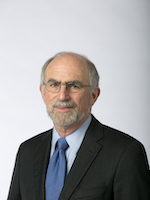 | Bruce Jentleson is William Preston Few Professor of Public Policy and Professor of Political Science at Duke University. He also is a Global Fellow at the Woodrow Wilson International Center for Scholars, and Non-Resident Senior Fellow at the Chicago Council on Global Affairs. From 2015 to 2016, he was the Henry A. Kissinger Chair in Foreign Policy and International Relations at the John W. Kluge Center, Library of Congress. He received the 2018 American Political Science Association International Security Section Joseph J. Kruzel Award for Distinguished Public Service. His most recent book is The Peacemakers: Leadership Lessons from 20th Century Statesmanship (2018). His first book is Pipeline Politics: The Complex Political Economy of East-West Energy Trade (1986). He has served in a number of policy positions including Senior Advisor to the U.S. State Department Policy Planning Director (2009-2011). |
 | Nadiya Kostyuk is Ph.D. Candidate in Political Science and Public Policy at the University of Michigan, Ann Arbor. Her research focuses on security studies, modern warfare, cyber conflict, cyber institutions and capability, Russian and Eurasian politics. Her methodological areas of interest include network analysis, mathematical and computational modeling, and text analysis. Her research has been published or is forthcoming in the Journal of Peace Research, Journal of Conflict Resolution, Journal of Global Security Studies, Journal of Strategic Security, Institute of Electrical and Electronics Engineers (IEEE), Cyber Defense Review, and several edited volumes and general-audience publications. |
 | Jonathan Kirshner is Professor of Political Science and International Studies at Boston College and the Stephen and Barbara Friedman Professor of International Political Economy Emeritus in the Department of Government at Cornell University. His current research projects center around themes pertaining to international relations after the financial crisis, applications of classical realism, and the politics of the ‘seventies’ film. Recent books of his include American Power After the Financial Crisis (2014), Hollywood’s Last Golden Age: Politics, Society and the Seventies Film in America (2012), and The Great Wall of Money: Power and Politics in China’s International Monetary Relations (2014). |
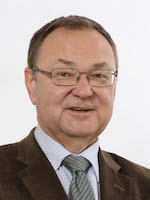 | Mikhail Krutikhin is a co-founder and leading analyst of RusEnergy, an independent consulting agency based in Moscow, Russia. A graduate of the Institute of Oriental Languages at the Moscow Lomonosov State University, he majored in Iranian philology in 1970, and in 1985 obtained a Ph.D. in modern history. Between 1972 and 1992, he worked at the TASS news agency on missions to Egypt, Syria, Lebanon, and Iran. Since 1993, he has been analyzing opportunities and specifics of investments in the energy industry in the post-Soviet space — first with the U.S.-based Russian Petroleum Investor Inc. and then with RusEnergy. He is a permanent member of international think tanks that deal with a wide array of political and economic issues — noticeable at Carnegie Endowment for International Peace, Germany’s SWP and DGAP, the Center for Transatlantic Relations at Johns Hopkins University SAIS, the Canadian Energy Research Institute, and a few other prominent analytical centers. |
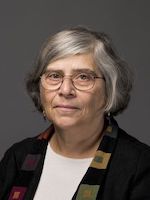 | Susan Landau is Bridge Professor of Cyber Security and Policy at The Fletcher School and the School of Engineering at the Department of Computer Science at Tufts University and Visiting Professor at the Department of Computer Science at University College London. She works at the intersection of cybersecurity, national security, law, and policy. Her new book is titled Listening In: Cybersecurity in an Insecure Age (2017). Landau has testified before Congress and frequently briefed U.S. and European policymakers on encryption, surveillance, and cybersecurity issues. Landau has been a Senior Staff Privacy Analyst at Google, a Distinguished Engineer at Sun Microsystems, and a faculty member at Worcester Polytechnic Institute, the University of Massachusetts Amherst, and Wesleyan University. She is a member of the Cybersecurity Hall of Fame and of the Information System Security Hall of Fame, as well as a fellow of the American Association for the Advancement of Science and of the Association for Computing Machinery. |
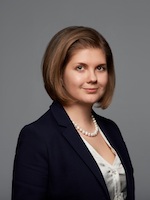 | Anastasia Likhacheva is Director of Centre for Comprehensive European and International Relations at the Higher School of Economics (HSE) in Moscow, Russia and acts as Deputy Dean for Research at the Faculty of World Economy and International Affairs at HSE. Her key area of expertise is international political economy with a focus on sanctions, Eurasian integration, development of the Russian Far East, and Russian foreign policy in Greater Eurasia. Her Ph.D. thesis was dedicated to the role of fresh water deficit in modern international relations. She regularly prepares policy briefs for senior Russian public authorities and has been a member of expert working groups in Russia and abroad since 2014. She is an author and co-author of more than 100 academic papers, briefs, and working papers published in Russia and abroad and since 2016. She is a Russian co-head of Organizing Committee of the Working Group on the Future of U.S.-Russia Relations co-organized by HSE and Harvard University. |
 | Amrita Narlikar is President of GIGA German Institute of Global and Area Studies and Professor of International Relations at Universität Hamburg. Before coming to Hamburg, she was Reader for International Political Economy at the University of Cambridge. She also has intellectual roots in Oxford, where she read for her M.Phil. and D.Phil. at Balliol and then held a Junior Research Fellowship at St John’s. Her research expertise lies in the areas of international trade, rising powers, and multilateral negotiations. She has authored, co-authored, and edited nine books, including Bargaining with a Rising India (2014), The World Trade Organization: A Very Short Introduction (2005), The Oxford Handbook on the WTO (2012) and Deadlocks in Multilateral Negotiations (2010). She has also had numerous articles published in international peer-reviewed journals, and she frequently provides her expertise to diverse media outlets. She also writes “Globale Gedanken”, a monthly column for the German national newspaper Der Tagesspiegel. |
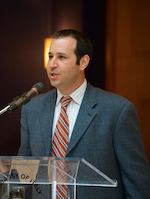 | Abraham Newman is Professor of Government at the Edmund A. Walsh School of Foreign Service at Georgetown University. He is the Director of the Mortara Center for International Studies. His research focuses on the politics generated by globalization, and he is the co-author of Of Privacy and Power: The Transatlantic Struggle over Freedom and Security (2019), co-author of Voluntary Disruptions: International Soft Law, Finance and Power (2018), author of Protectors of Privacy: Regulating Personal Data in the Global Economy (2008), and co-editor of How Revolutionary Was the Digital Revolution (2006). His work has appeared in various journals, including Comparative Political Studies, International Organization, International Security, Science, and World Politics. |
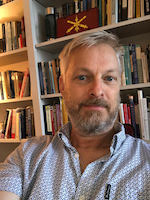 | Thomas Oatley holds the Corasaniti-Zondorak Chair of International Politics at Tulane University in New Orleans. He has authored articles and books that focus on the politics of global finance, on American power, and on international economic and financial institutions. Before moving to New Orleans to take up his current position, he spent more than twenty years at the University of North Carolina at Chapel Hill and held visiting appointments at Harvard University and the Norwegian University of Science and Technology. |
 | Barry Posen is Ford International Professor of Political Science at the Massachusetts Institute of Technology and serves on the Executive Committee of Seminar XXI. He has written three books, Restraint-A New Foundation for U.S. Grand Strategy (2014), Inadvertent Escalation: Conventional War and Nuclear Risks (1991), and The Sources of Military Doctrine (1984). The latter won two awards: The American Political Science Association's Woodrow Wilson Foundation Book Award and Ohio State University's Edward J. Furniss Jr. Book Award. He is also the author of numerous articles, including "The Case for Restraint," The American Interest (2007) and "Command of the Commons: The Military Foundation of U.S. Hegemony," International Security (2003). In 2016, he was appointed visiting Henry A. Kissinger Chair in Foreign Policy and International Relations at the Library of Congress, John W. Kluge Center. |
 | Elizabeth Rosenberg is Senior Fellow and Director of the Energy, Economics, and Security Program at the Center for a New American Security. In this capacity, she publishes and speaks on the national security and foreign policy implications of the use of sanctions and economic statecraft as well as energy market shifts. Her current geographic areas of focus include Iran, Russia, China, North Korea, and Venezuela. She has testified before Congress on an array of banking and trade issues, and on energy geopolitics and markets topics. She is widely quoted by leading media outlets in the United States and abroad. Prior to her service in the U.S. government Rosenberg was an energy policy correspondent at Argus Media in Washington, D.C. analyzing U.S and Middle Eastern energy policy, regulation, and trading.
|
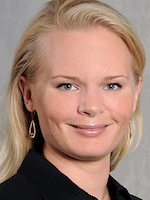 | Kaija Schilde is Associate Professor at the Boston University Pardee School of Global Studies. She is currently working on a book manuscript addressing why states outsource security to firms and industries, titled Outsourcing Security, Managing Risk: Hiding the National Security State in Global Markets. Her first book, The Political Economy of European Security (2017), theorizes EU-interest group state-society relations, identifying the political development of security and defense institutions as an outcome of industry interest and mobilization. Her research spans multiple dimensions of comparative national security, including the causes and consequences of military spending; the relationship between spending, innovation, and capabilities; defense reform and force transformation; the politics of defense protectionism; and the political economy of border security. She has published articles in the Journal of Common Market Studies, Journal of Global Security Studies, Security Studies, European Security, and the Journal of Peace Research. |
 | Pavel Sharikov is Research Fellow in the Institute for USA and Canada Studies of Russian Academy of Sciences, focusing on American politics in general and cybersecurity issues in particular. He graduated from the University for Humanitarian Studies in 2005 holding a degree of Specialist in International Relations. Prior to his academic career, he worked as a reporter in major Russian information agencies. In 2009, he defended a dissertation devoted to American cybersecurity policies. In 2012, he majored in legal informatics from the Department of Law at Higher School of Economics. In 2015, he wrote a book Information Security in a Multipolar World. From 2011 to 2019, he ran a Center for Applied Research in the Institute for USA and Canada Studies of Russian Academy of Sciences and taught a number of courses as an Associate Professor at Moscow State University. Currently he is a Visiting Assistant Research Scholar at the Center for International and Security Studies at University of Maryland. |
 | Natasha Tusikov is Assistant Professor in the Department of Social Science at York University in Toronto. Her research examines the intersection among law, crime, technology, and regulation. She is the author of Chokepoints: Global Private Regulation on the Internet (2016). Tusikov is the principal investigator of a SSHRC Insight Development Grant (2019-2021) that investigates the central role that the control of data plays in smart cities. Before obtaining her Ph.D. at the Australian National University, she was a strategic criminal intelligence analyst and researcher at the Royal Canadian Mounted Police in Ottawa. |
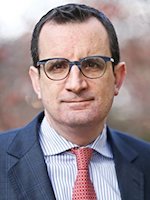 | Thomas Wright is Director of the Center on the United States and Europe and Senior Fellow in the Project on International Order and Strategy at the Brookings Institution. He is also a nonresident fellow at the Lowy Institute for International Policy. Previously, he was executive director of studies at the Chicago Council on Global Affairs, a lecturer at the Harris School of Public Policy at the University of Chicago, and senior researcher for the Princeton Project on National Security. Wright works on U.S. foreign policy and grand strategy, Donald Trump's worldview, the future of Europe, and Asian security. His book is All Measures Short of War: The Contest For the 21st Century and the Future of American Power (2017). His writings have appeared in the American Political Science Review, Orbis, Survival, The Washington Quarterly, Financial Times, International Herald Tribune, and The Washington Post, as well as a number of international newspapers and media outlets.
|
 | Rachel Ziemba is Founder of Ziemba Insights, a macroeconomic research firm that helps investor and policy maker clients understand macro opportunities, risks, and scenarios. Her work is comparative and focuses on the resilience of national balance sheets, the assessment of contingent liabilities, and the role of sovereign investment vehicles. Her work is global with particular expertise on the role of oil producers and China in the global economy. She is Adjunct Senior Fellow at the Center for a New American Security. Her policy-oriented research focuses on the economic and political impacts of coercive economic policies such as financial sanctions, export controls, trade and investment restrictions, as well as the role of state-owned investors, including sovereign wealth funds and state-owned enterprises. She is an Adjunct Lecturer at the Center for Global Affairs at New York University, where she teaches in the Global Economy program. She is the co-author of Scenarios for Risk Management and Global Investment Strategies and Investment for the Modern Age (2007).
|